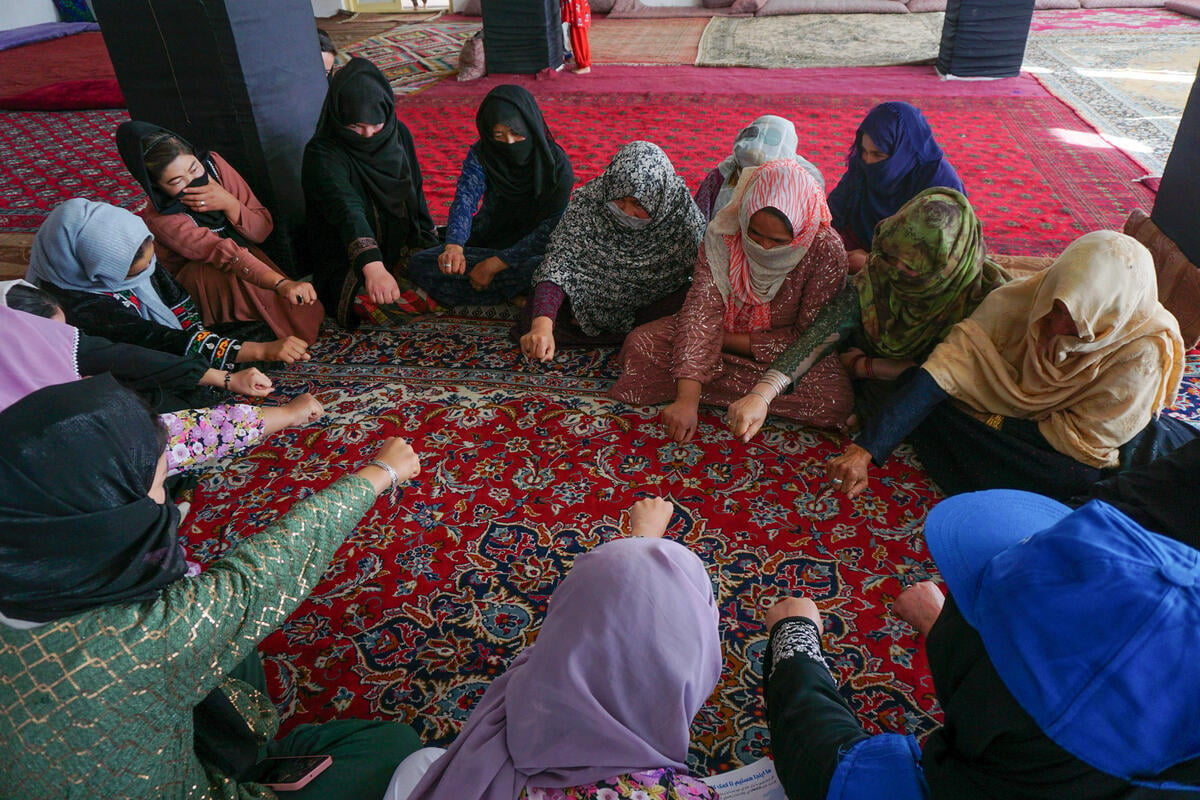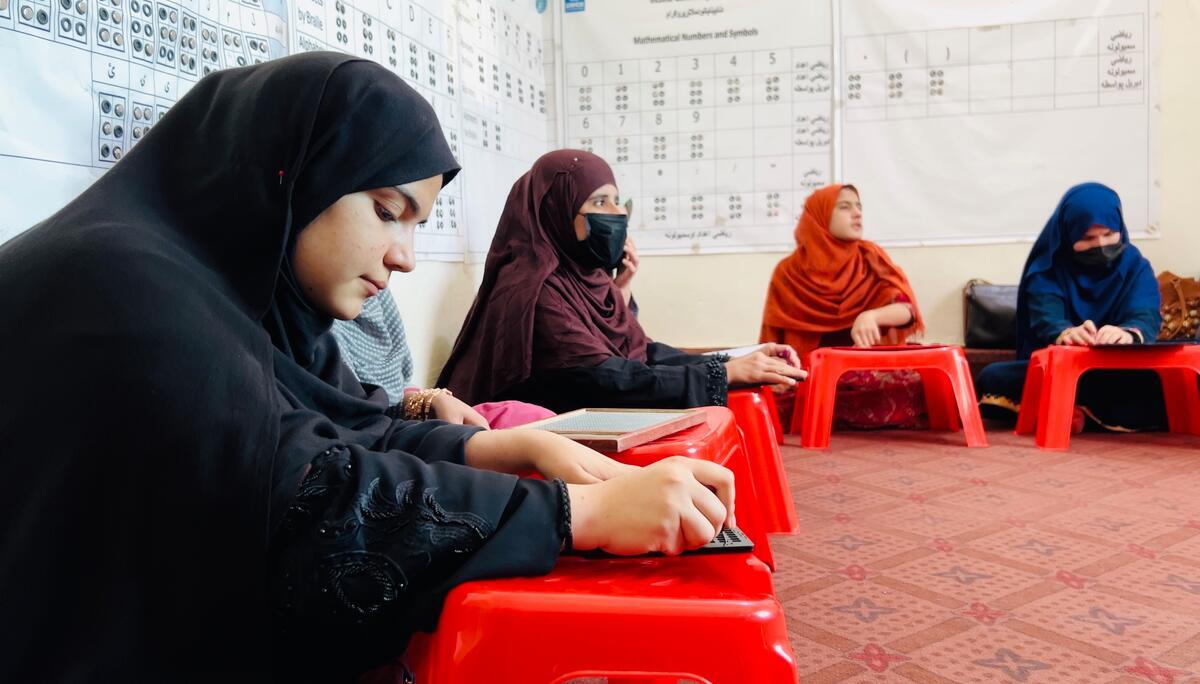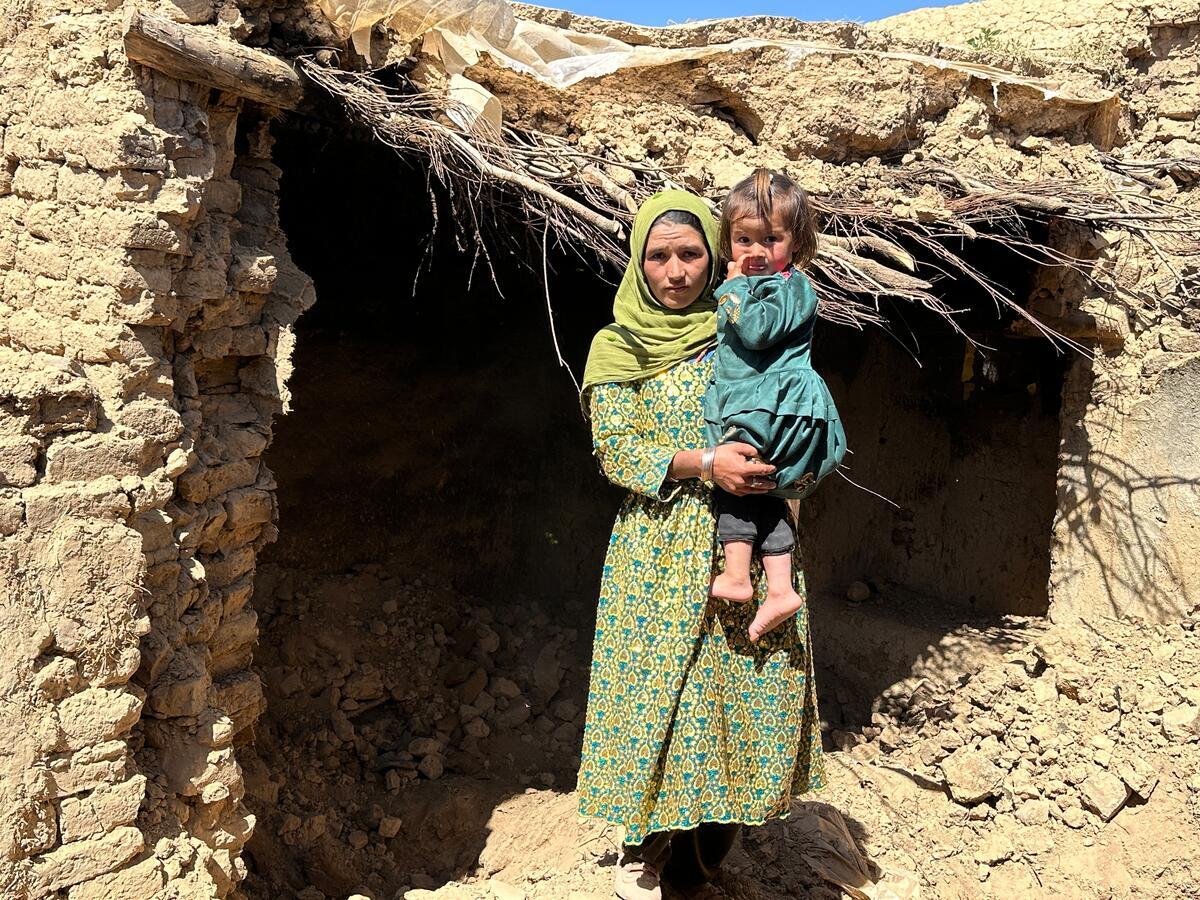UNHCR helps more than 200,000 unregistered Afghans return home as deadline passes
UNHCR helps more than 200,000 unregistered Afghans return home as deadline passes

ISLAMABAD, Pakistan, April 16 (UNHCR) - A grace period for unregistered Afghans to return home from Pakistan ended at the weekend after more than 200,000 Afghans had repatriated with UNHCR assistance.
The sixth year of UNHCR-facilitated returns to Afghanistan was linked to the registration of more than 2.15 million Afghan citizens in Pakistan. The exercise ended earlier this year and Pakistan said Afghans who were not registered and did not have Proof of Registration (PoR) cards would be given a six-week grace period to return voluntarily.
The return deadline passed on Sunday and Pakistan has said it will prosecute unregistered Afghans remaining in the country.
On the last day of the grace period, just over 9,000 Afghans left Pakistan from three voluntary repatriation centres (VRC) run by UNHCR in North-West Frontier Province (NWFP) and Balochistan province. Since this year's repatriation began, a total of 205,977 Afghans went back home voluntarily, most from NWFP.
"It was a challenging task for UNHCR and its staff to assist more than 200,000 Afghans return home in the given six weeks, but UNHCR staff worked seven days a week to process everyone," said Kilian Kleinschmidt, UNHCR's assistant representative in Pakistan.
"Strict physical verification measures were in place, along with the iris scanning of individuals above the age of five to make sure that only deserving Afghans received UNHCR assistance in Afghanistan. There was a sizeable number that tried to abuse the system and got rejected," said Kleinschmidt.
"Deadline or no deadline, I made up my mind last year that I had to return with my family to Afghanistan but my busy work schedule never allowed me to take time off to get a registration card," said 38-year-old Abdul Hameed sitting atop his truck at the VRC in Peshawar, capital of NWFP.
Hameed, who ran a tea stall for most of his 10 years in Pakistan, was optimistic about the future. "It's easier to earn a living in Afghanistan today," he said, adding that there were opportunities to work with foreign non-governmental organisations and other groups operating in Afghanistan.
Across the border in Afghanistan, Rahman Fakharuddin, a 36-year-old returnee from Jalozai camp in Pakistan, went to an encashment centre in Nangarhar province's Mohmand Dara camp to collect a UNHCR cash grant for him and his seven family members.
The assistance averages US$100 per person depending on the distance to the area of origin. More than 132,000 Afghans have claimed their assistance grants, with refugees given a week to approach encashment centres once in Afghanistan.
"I dismantled my home and brought the wooden beams back. Many others have done the same," said Fakharuddin. The Pakistan government has said it plans, with Afghanistan's agreement, to close Jalozai camp by the end of August as part of a camp consolidation process.
Like many other Afghans, Fakharuddin also considered economic factors when deciding to repatriate. "Job opportunities are not high in Jalozai these days because everyone assumes they'll have to leave soon. I used to make 100 rupees (US$1.65) a day as a daily worker. In Jalalabad, I can make 170 rupees (US$2.8) a day."
Meanwhile, UNHCR will from Thursday begin processing Afghans with PoR cards who want to return home. The cards - only recognised as an identification document - are valid for three years and provide temporary protection for Afghans living in Pakistan.
"Afghans with PoR cards who decide for voluntary repatriation this year will also get US$100 as a transportation and reintegration grant. The enhanced package is meant to help returnees with initial reintegration in their country of origin," said Kleinschmidt, who added that "our doors will remain open for individual asylum seekers with immediate protection concerns."
UNHCR-assisted voluntary repatriation of Afghans since 2002 passed the 3 million mark earlier this month, making it the largest such operation in the agency's history. However, more than 2 million Afghans are still in exile in Pakistan, a protracted situation that can only be resolved with continued international support.
By Babar Baloch in Islamabad, Pakistan
and Vivian Tan in Jalalabad, Afghanistan








